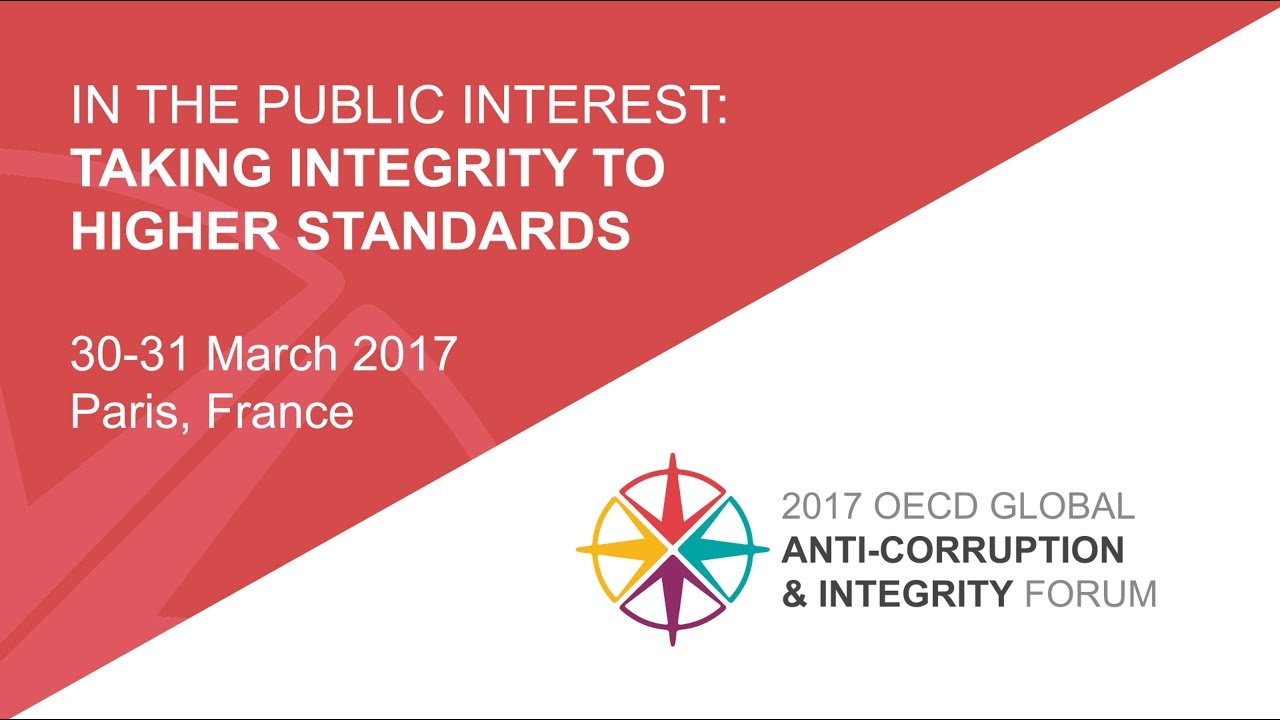The FiTI as a knowledge partner of 2017 OECD Global Anti-Corruption and Integrity Forum

The 2017 OECD Global Anti-Corruption and Integrity Forum took place on 30 – 31 March in Paris, France. Government ministers, business leaders and civil society representatives discussed issues including the cost of corruption to society, the use of political donations to buy influence, the role of export controls to counter bribery as well as the importance of integrity in managing natural living resources (incl. fisheries).
For this year’s edition, the Fisheries Transparency Initiative participated in the Forum as knowledge partner, reflecting the growing consensus on the need of integrity for a sustainable management of natural living resources (wildlife incl. fisheries).
Together with WWF, and the OECD, the Fisheries Transparency Initiative organized the session “Integrity matters for wildlife” on March 30, 2 – 3:30 pm.
The session was moderated by Mr. Luiz de Mella (Deputy Director OECD Public Governance and Territorial Development Directorate). After an introduction by Rob Parry-Jones (WWF), Candice Welsch (UNODC), Markus Busch (Federal Ministry of Justice and Consumer Protection, Germany), David Luna (U.S. State Department), Steven Broad (Traffic International) and Sebastian Wegner (FiTI) discussed the role of international initiatives in fostering good governance measures that deter corruption and partnerships needed, e.g. to prevent wildlife trafficking, fisheries crime as well as overfishing, and to increase transparency for better management and prevention.
Corruption was acknowledged as a pervasive enabler of unsustainable use of natural living resources. The panelists underlined that various forms of corruption and associated crimes are linked to wildlife and fisheries crime, threatening food security, livelihoods of local communities, fulfillment of human rights and national economies, and undermining potential for achievement of the sustainable development goals.
It was acknowledged that the different stakeholders should increasingly work together in order to tackle the challenge.
But there are preventive tools. And transparency was mentioned as a critical way to strengthen responsible resource management.
The summarizing statements highlighted that international cooperation amongst different stakeholders is key and should be strengthened in order to successfully implement anti-corruption measures (incl. transparency) for the benefit a responsible resource management.
The FiTI seeks to build on this momentum and looks forward to continue the exchange with various stakeholders from all sectors.